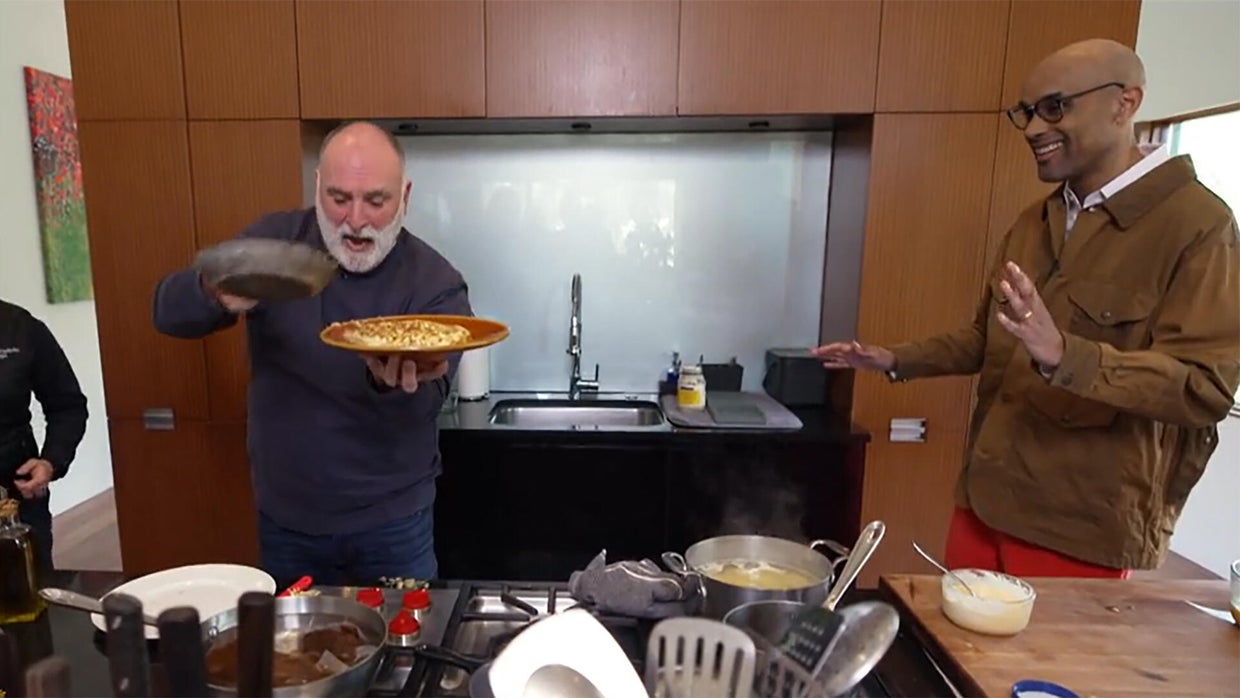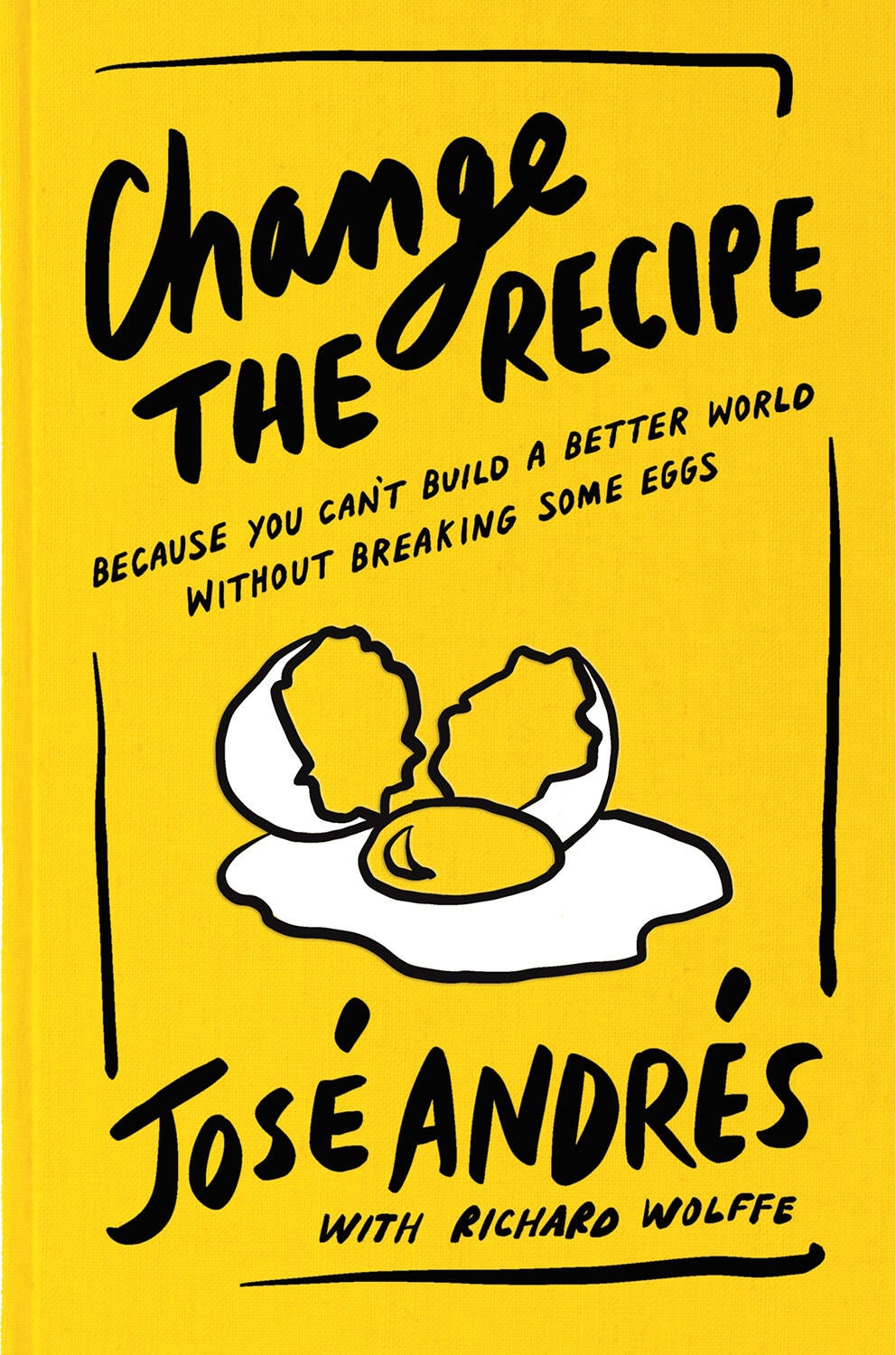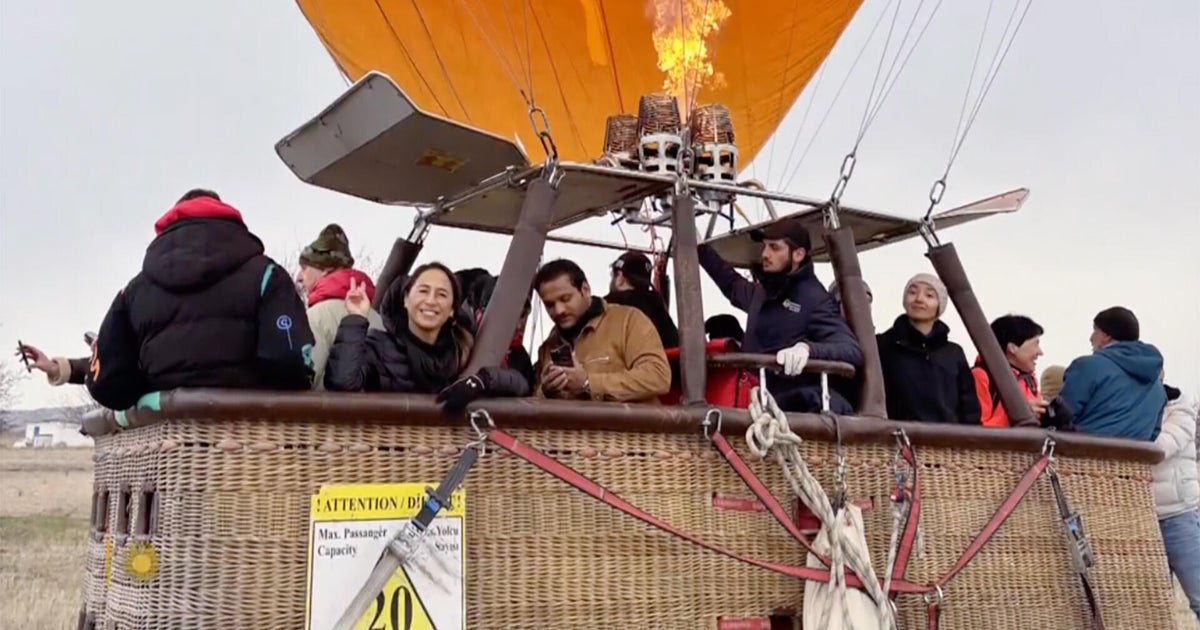José Andrés on feeding the needy, and feeding the soul
You don't typically find chef José Andrés at home. Often, he's wherever there's trouble, feeding survivors of wars or natural disaster. He's founder of World Central Kitchen, the 15-year-old non-profit.
But here, outside Washington, where he and his wife raised three daughters, the world-renowned chef is making me a Tortilla Española (or Spanish omelette).
In the kitchen, and in his own life, Andrés keeps going – correcting mistakes and savoring triumphs along the way. He explains it all in his new book, "Change the Recipe: Because You Can't Build a Better World Without Breaking Some Eggs" (to be published April 22 by Ecco).
I asked, "You don't like to sit around agonizing over the next decision?"
"If you don't move, you will learn nothing," Andrés said. "Even if you are going in the wrong direction, you are already learning."
His education began in his parents' kitchen in Spain. "For me, food always equal happiness, equal celebration, equal friends," he said.
He brought the celebration to America. In 1993, he helped launch a restaurant in Washington called Jaleo, which served tapas – small portions meant to be shared. He said it was a great way to express what Spanish cooking was, one small plate at a time.
Did he have to explain to American diners how tapas works – customers share their food? "Well, yes and no," he said. "In early days, I think the big message of sharing is happiness. If somebody doesn't like sharing, I say the 20-inch solution: You bring the plate in the middle of the table 20 inches towards you, then raise your fork, raise your knife, 'This is my castle, and you are not touching my plate!'"
In 2003, he opened Minibar by José Andrés, a tiny but ambitious restaurant that earned two Michelin stars for its imaginative, sometimes futuristic food.
I asked, "I get the sense that part of you loves these traditional, simple, humble dishes, and there's part of you that likes to experiment?"
"Tradition is everything, it's very important," Andrés said. "But we need to remember that the traditions of today were the modernity of the past, and that the things that we think are very, almost science-fiction type of things will be the traditions of tomorrow."
The José Andrés Restaurant Group now includes nearly 40 restaurants across the country. Andrés stepped back from the company last year to focus on his many other projects, including books, TV shows, and his Global Food Institute at George Washington University. But he admits that shuttling between his many enterprises and his humanitarian work can be a struggle. He said, "Every time I come back from those missions, it's hard to come back, because a part of your brain will always be there."
"But it's an unusually big difference for you," I said. "You're getting food to some of the most desperate people in the world, but also at your restaurant, you're serving some of the finest food in the world."
"Well, that's what get sometimes hard!" he laughed. "When you come back and then you have to go to Minibar, your two-star Michelin. But at the end, is no guiltiness on that. Life must go on. And it's okay to be enjoying a high meal, or cooking for your friends with great wines in your house. And at the same time remind yourself that there are people that they are not as lucky as you are, and that we must do something for them."
Since 2010, World Central Kitchen has been going into natural disasters, feeding the hungry using local ingredients and local infrastructure. It's best known because Andrés is out front. In 2017, after Hurricane Maria hit Puerto Rico, he served four million meals – and this was shortly after aiding victims of Hurricane Irma: "I was there two weeks; a week later, I am landing in San Juan."
In 2024, World Central Kitchen served more than 109 million meals in 20 countries. Man-made disasters can make the work even harder.
Asked how he can operate in a war zone without taking sides, Andrés replied, "There is no sides. We don't take sides. We feed people. When Israel was attacked by Hamas, we were feeding the people in the south in all the kibbutz, and then we were there also in the north of Israel. At the same time, we went into Gaza. Food and water is, and must always be, a universal right."
On April 1 of last year, seven members of the World Central Kitchen staff were killed by an Israeli military strike in Gaza. At their memorial, Andrés said, "We are all consumed with anger, regret, and sorrow."
I asked, "Did you have to put the anger to the side, in order to keep doing the kind of work that you're doing?"
"When you lose somebody, and especially when it's people you love and they are so close to you, you know, it makes you think: how we going to be helping the world without taking some risks?" Andrés said. "Because people in their darkest hour, they cannot be alone.
"Fighting hate with hate is not the way. So, we gonna be betting and investing and building longer tables for Israel to have a brighter future, for the people of Palestine has the future they deserve, for the people of the Middle East, for the people of the world, for the people of Ukraine," he said.
At 55, José Andrés says he can't be everywhere, but maybe his organization and his philosophy can. "One of the biggest assets of humanity is that everybody has empathy within themselves that they don't even know," he said. "I didn't call it José Andrés Kitchen! This organization belongs to so many people. It's not José Andrés feeding in Ukraine, or feeding in Gaza, or feeding in North Carolina. I been there. But that was more the old days. Now, I try to make sure I spend my time even, if anything, more wisely.
"I have a hard time not going, personally," he said. "But I'm not worried, because I know somebody else is there."
READ AN EXCERPT: "Change the Recipe" by José Andrés
For more info:
- "Change the Recipe: Because You Can't Build a Better World Without Breaking Some Eggs" by José Andrés with Richard Wolffe (Ecco), in Hardcover, eBook and Audio formats, available April 22 via Amazon, Barnes & Noble and Bookshop.org
- José Andrés Restaurants
- World Central Kitchen
- Global Food Institute, George Washington University
Story produced by Mary Raffalli. Editor: Remington Korper.
See also:
- Chef José Andrés on serving meals in a war zone ("Sunday Morning")





